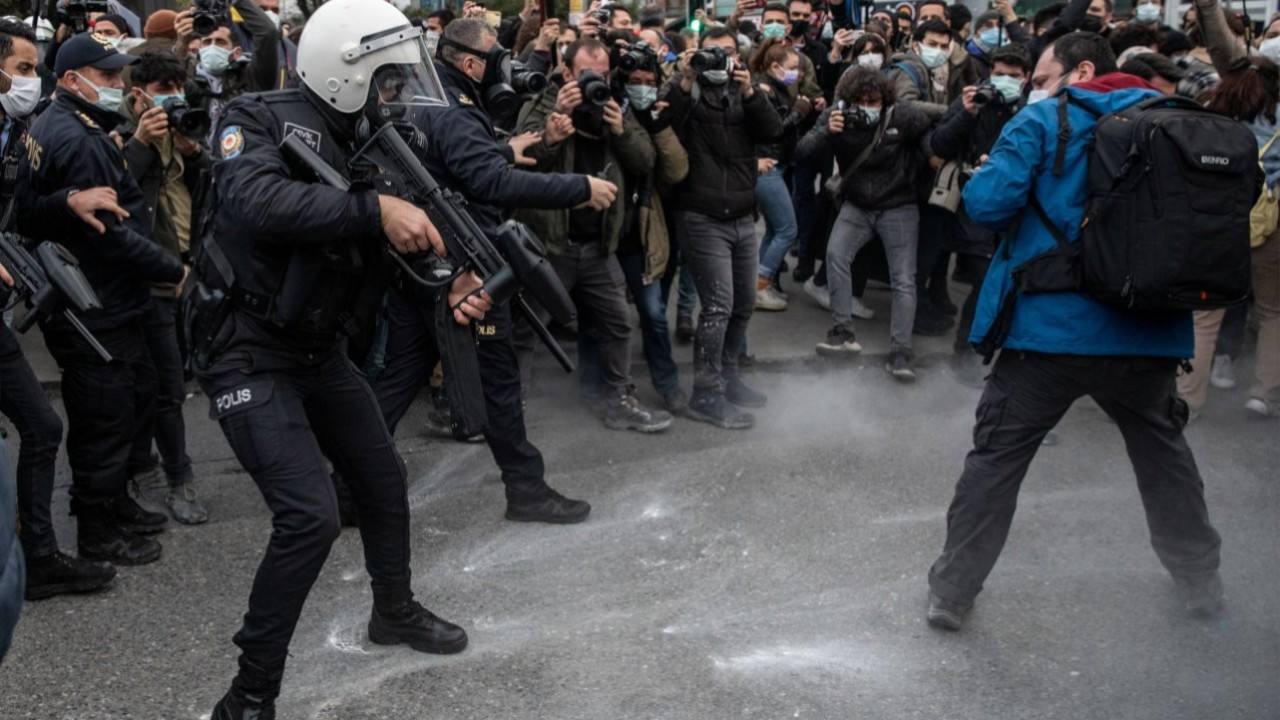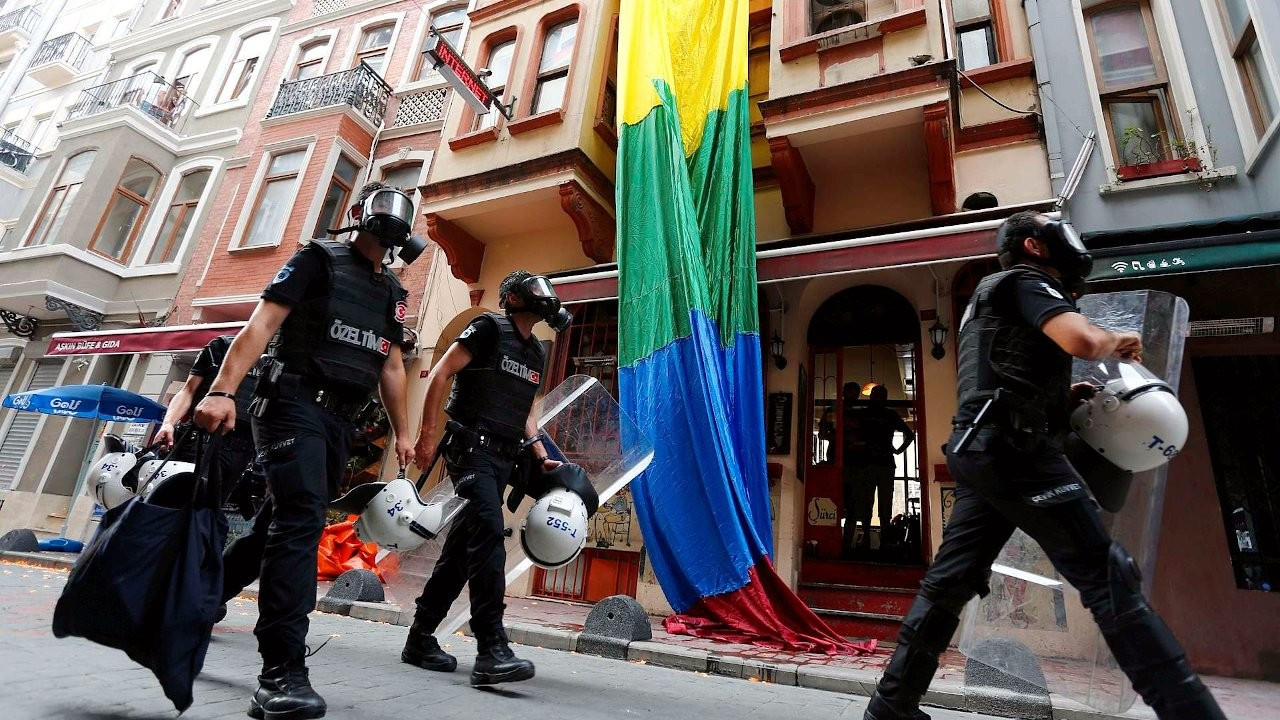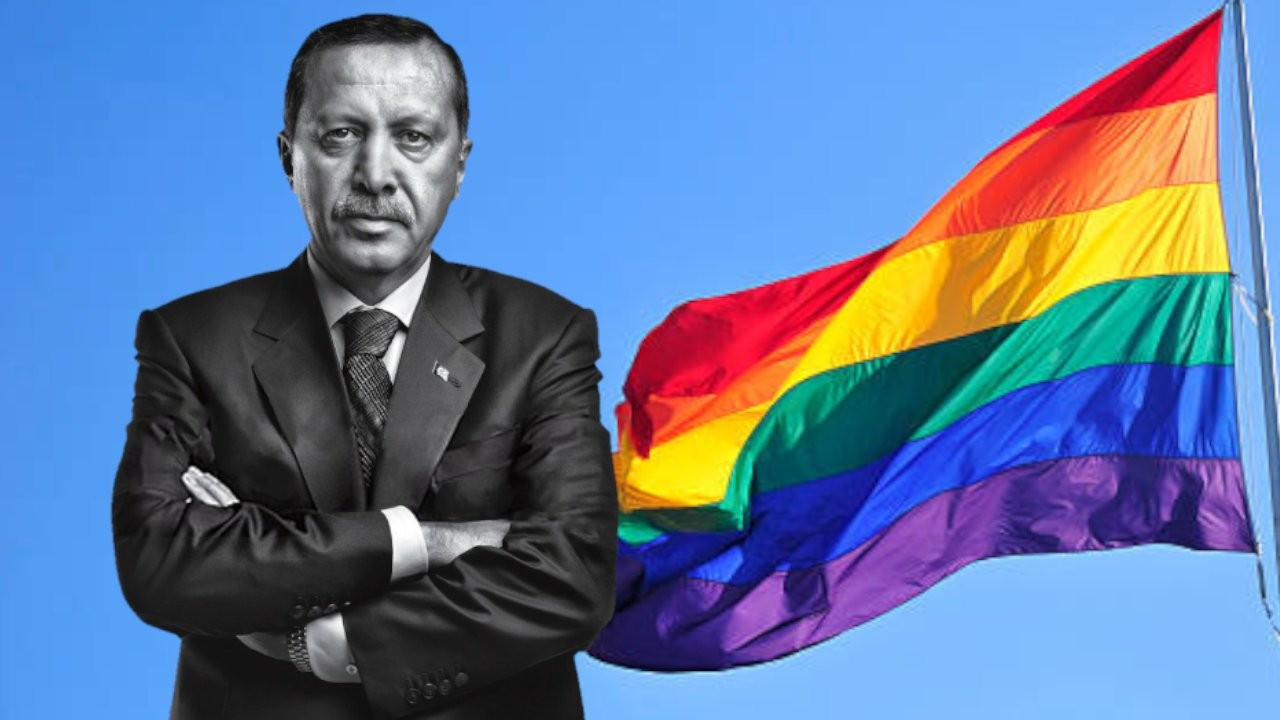Turkey dismisses int'l criticism of its response to Boğaziçi protests
The Turkish Foreign Ministry has dismissed international criticism of its response to the ongoing Boğaziçi University protests. "We warn certain circles [abroad] not to use language provoking groups that resort to illegal ways and encourage illegal actions," the foreign ministry said without naming specific countries.
Duvar English
The Turkish Foreign Ministry on Feb. 4 dismissed international criticism of its response to the month-long protests at one of the country's top universities, warning that such criticism could encourage what it has called 'illegal acts.'
Students and academics from Istanbul's Boğaziçi University have been protesting President Recep Tayyip Erdoğan's appointment of Melih Bulu, an academic and former political candidate from the ruling Justice and Development Party (AKP), as rector of the school.
"We warn certain circles [abroad] not to use language provoking groups that will resort to illegal means and encourage illegal actions," the ministry said without naming specific countries.
"It is nobody's place to intervene in Turkey's internal affairs," it said in a statement.
The United States on Feb. 3 said it was concerned by the detention of students and other demonstrators, and condemned what it said was anti-LGBT rhetoric surrounding the protests.
Turkey's Interior Minister Süleyman Soylu referred to LGBT students as 'perverted,' while Erdoğan said on Feb. 3 there was "no such thing" as LGBT individuals.
The United Nations Human Rights Office also called for an end to excessive use of force against students and protesters, condemning the action in a tweet which referred to it as "the homophobic & transphobic comments by the officials."
“We call for prompt release of students & protestors arrested for participating in peaceful demonstrations, and urge the police to stop using excessive force. We condemn homophobic & transphobic comments by officials, inciting hatred & discrimination against LGBT people,” it said.
#Turkey: We call for prompt release of students & protestors arrested for participating in peaceful demonstrations, and urge the police to stop using excessive force. We condemn homophobic & transphobic comments by officials, inciting hatred & discrimination against LGBT people. pic.twitter.com/EXF9RvMiyQ
— UN Human Rights (@UNHumanRights) February 3, 2021
The European Commission commented on the incident to the Euronews Turkish service, saying it is “seriously concerned about the negative developments continuing in Turkey.”
Officials from the European Commission reportedly said that the Istanbul governor's ban on demonstrations where the Boğaziçi University campus is located is “a seriously worrisome situation” and goes against the Turkish officials' discourse regarding upcoming reforms.
European Commission officials reminded Turkey that the use of excessive police force against demonstrators is against the country's obligations as a member of the European Council.
Calling for the swift release of detained protestors, the European officials slammed Turkish officials' hate speech targeting LGBT individuals, saying, “The use of hate speech by top officials against LGBT students and the closure of an LGBT association is unacceptable during these events,” the statement said.
Turkey rapporteur of the European Parliament Nacho Sanchez Amori similarly said that he was “very worried about the deteriorating situation of Boğaziçi protests.”
"Government's answer so far: police violence, mass detentions, general terrorism accusations, #LGBTI targeting... Does this reflect the new positive agenda and the will of reforms?” he asked on his Twitter account.
Very worried about deteriorating situation of #Bogazici protests and 🇹🇷 Government's answer so far: police violence, mass detentions, general terrorism accusations, #LGBTI targeting... Does this reflect the new positive agenda and the will of reforms? https://t.co/4VTqhRsrle
— Nacho Sánchez Amor (@NachoSAmor) February 3, 2021
"Democracy is about protecting & respecting minority or dissenting opinions, not imposing a unilateral, authoritarian concept of the (alleged) general will. Repression of criticism denotes lack of democratic arguments. Prestigious #BogaziciUniversity deserves better than this!” he further noted.
As for the United States, State Department spokesman Ned Price told reporters on Feb. 3: "We are concerned by detentions of students and other demonstrators and strongly condemn the anti-LGBTQIA rhetoric surrounding the demonstrations."

 World expresses concern over detention of Boğaziçi protestors, anti-LGBT rhetoric surrounding themHuman Rights
World expresses concern over detention of Boğaziçi protestors, anti-LGBT rhetoric surrounding themHuman Rights 'We do exist': Turkey's LGBT community anxious but defiant in the face of fresh gov't attacksHuman Rights
'We do exist': Turkey's LGBT community anxious but defiant in the face of fresh gov't attacksHuman Rights Twitter limits engagement on Soylu's tweets over hateful conduct against LGBT communityHuman Rights
Twitter limits engagement on Soylu's tweets over hateful conduct against LGBT communityHuman Rights President Erdoğan praises his party's youth for not being LGBTHuman Rights
President Erdoğan praises his party's youth for not being LGBTHuman Rights